“You never really understand a person until you consider things from his point of view, until you climb inside his skin and walk around in it.” Harper Lee, To Kill a Mockingbird
Many more people know the premise of Freaky Friday than have actually watched any of the movies bearing that title. And many more will have seen one of those movies than will be familiar with the original source, the 1972 Young Adult novel by Mary Rodgers. [1]The daughter, incidentally of composer Richard Rodgers. I’m not sure how many people out there even know the book exists. But with four Freaky Friday movies having been released by the Walt Disney Company over the course of forty years, two theatrical and two made for television, society demands a verdict: which is the best take on the source material? Right, Society? Well, OK, mostly I just want to give a verdict. So without further ado…
I’d Like To Be You For a Day: Freaky Friday (1976)

The screenplay for the first cinematic Freaky Friday, directed by Gary Nelson, was actually written by Rodgers herself. Perhaps naturally then, its characterizations are the most faithful to that of the source material. Rebellious 13 year-old Annabel Andrews (Jodie Foster), her prim mother, Ellen (Barbara Harris), seemingly goody-two-shoes younger brother, Ben AKA Ape Face (Sparky Marcus), work-absorbed father, Bill (John Astin) and Boris Harris (Marc McClure), the neighbor for whom Annabel carries a torch, are all here, pretty much the same as they are in the book.
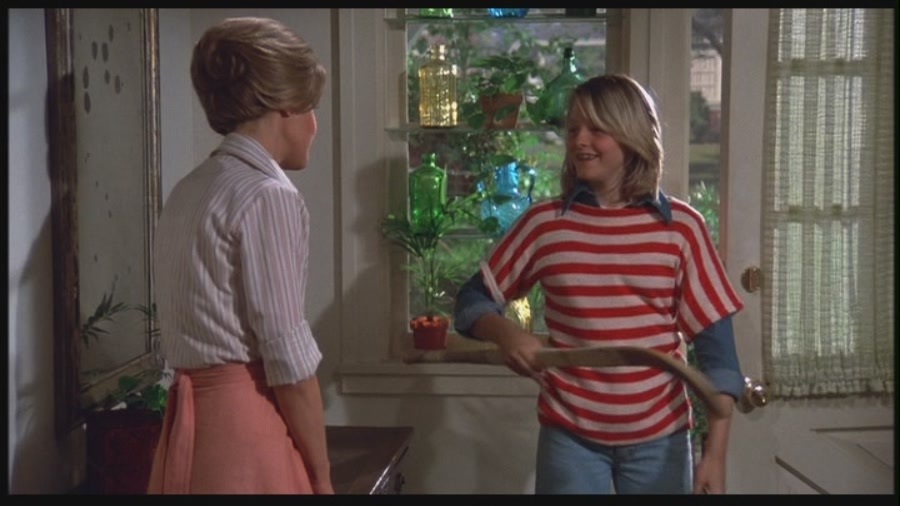
The Andrews family, however, has been moved from an apartment building in New York City to a home in an unspecified bayside suburban area. More important is the change to the narrative structure and the circumstances by which Ellen and Annabel swap bodies for the good part of a Friday. The book is entirely Annabel’s story. We’re introduced to her as she wakes up on Friday morning, having had a fight with her mother the night before about freedom, to find her mind is now in her mother’s body. We actually don’t know right away that the two have switched places as the book’s beginning chapters mislead reader and Annabel into thinking that her mind is somehow in both bodies. The whereabouts of the mother are a mystery for most of the story. We follow Annabel as she goes from being ecstatic about getting to experience adult independence to being panicked and overwhelmed as events spiral out of her control. Only then, when she has been humbled, is she reunited with her mother and returned to her old body. Turns out it was the Mom who switched them, which she inexplicably has the power to do, to teach Annabel a lesson.
In the movie, mother and daughter are switched around by, in the book’s words, “a third party.” On Friday morning, while each one is separately recounting the previous night’s skirmish to someone else, they say at the exact moment, “I wish I could trade places with her just for one day.” Apparently, when two people simultaneously express that wish on Friday the thirteenth, the universe is happy to oblige, or so this movie would have it. Far from being in control of the situation, Ellen initially wants to go home, and only commits to posing as her daughter when stung by the assertion that she couldn’t handle “a simple school day.” From that point on, Annabel and Ellen share the role of heroine and Ellen’s idealized view of childhood as “the best time of a person’s life” is deconstructed as well as Annabel’s concept of adulthood as the Promised Land of glamor and independence. So the premise we normally think of when we hear the title, Freaky Friday, was actually pioneered by this movie. [2]The book does have Ellen deal with not being able to purchase cigarettes or use her charge plates without permission. In fact, her experiences lead to her conclude that too many adults treat children … Continue reading
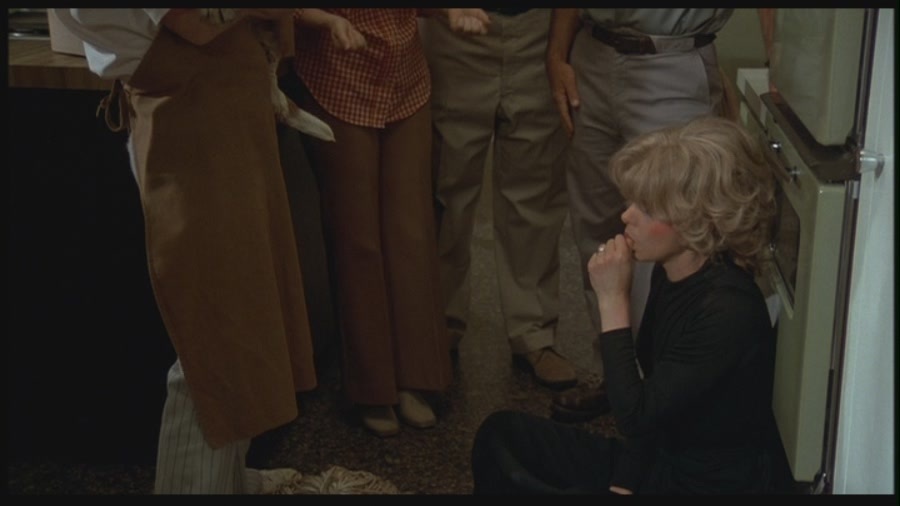
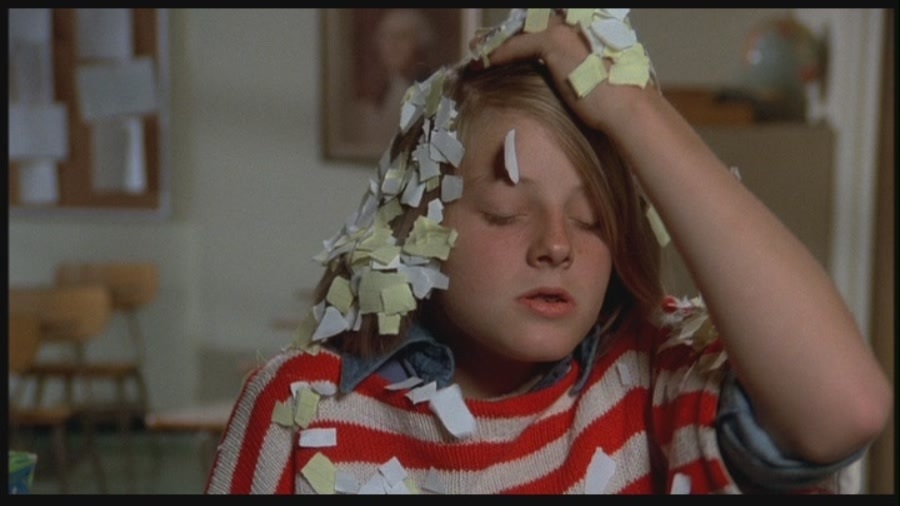
In the bookend scenes of her as Annabel, Jodie Foster perfectly captures the book’s narrator. She manages to convey a girl who is both perceptive enough to intelligently mock every adult authority figure in her life and totally oblivious to the justice of most of the criticism she receives from them. However, she’s not quite as good in the main body of the movie where she portrays Ellen in Annabel’s body. There’s nothing really wrong with her performance. It’s just not the best. Barbara Harris, on the other hand, is both convincing as the ladylike Ellen and natural and hilarious as the brash, blunt Annabel. She more or less carries the film on the shoulders.
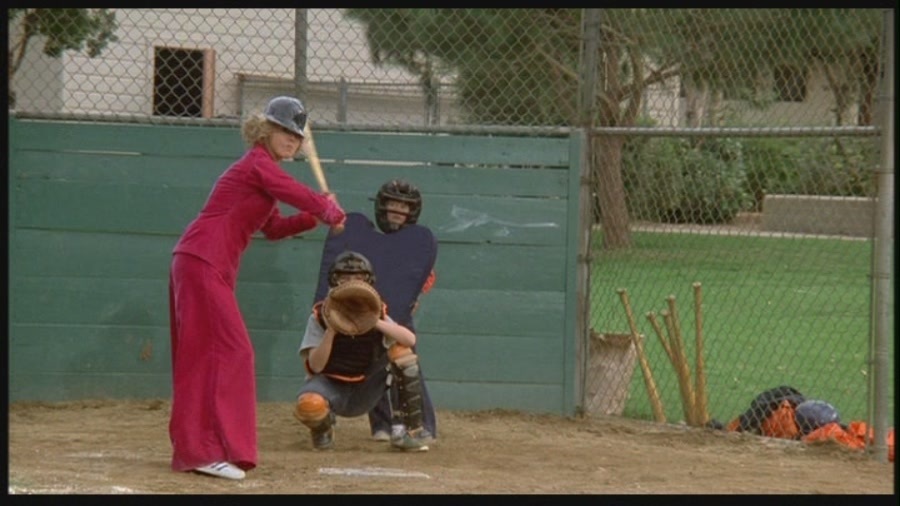
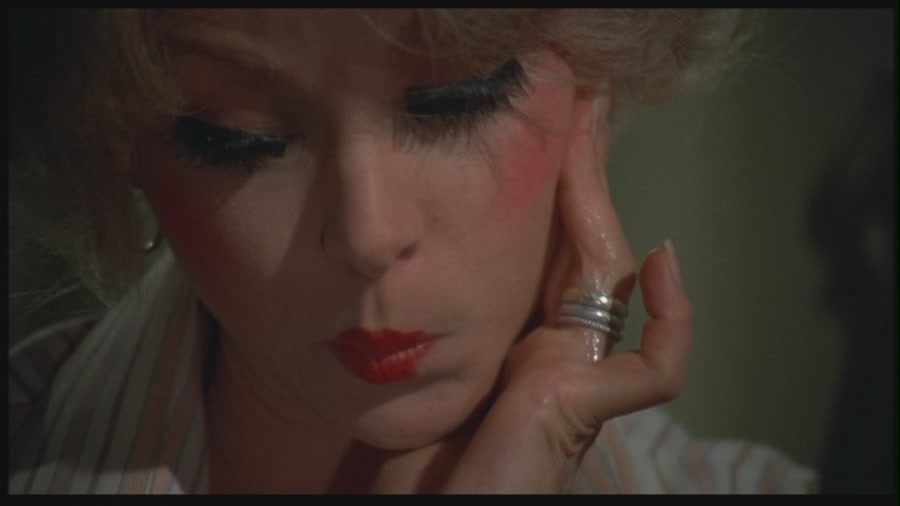
But that’s not to imply she’s the only good actor in it. There are lots of cameos from fun character actors like Sorrell Brooke, Patsy Kelly, Dick Van Patten and Kaye Ballard.
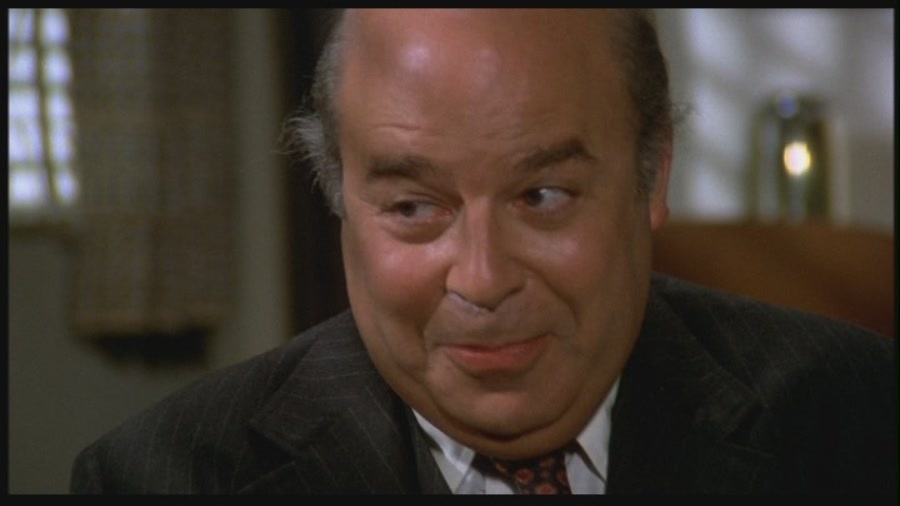
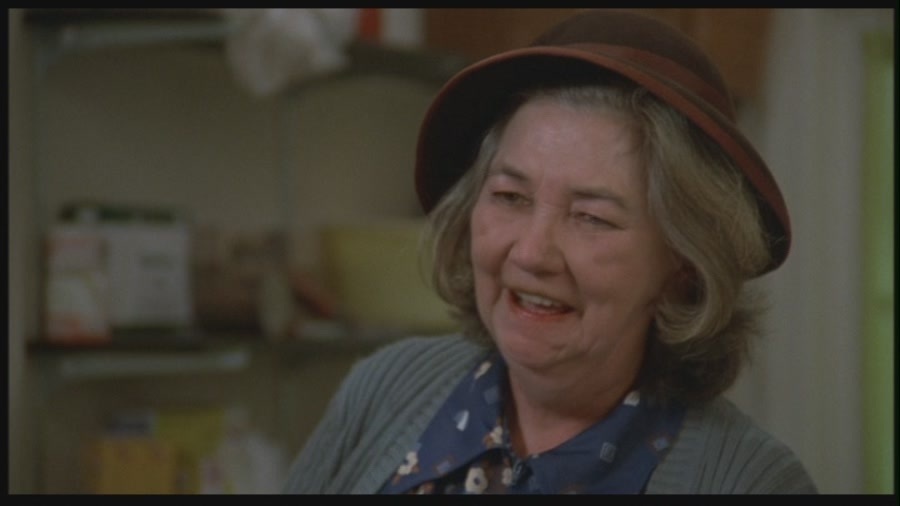
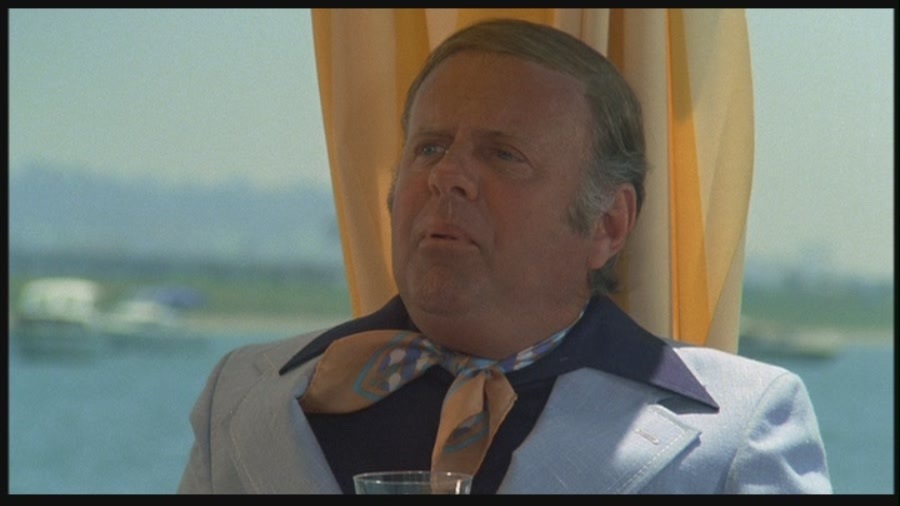
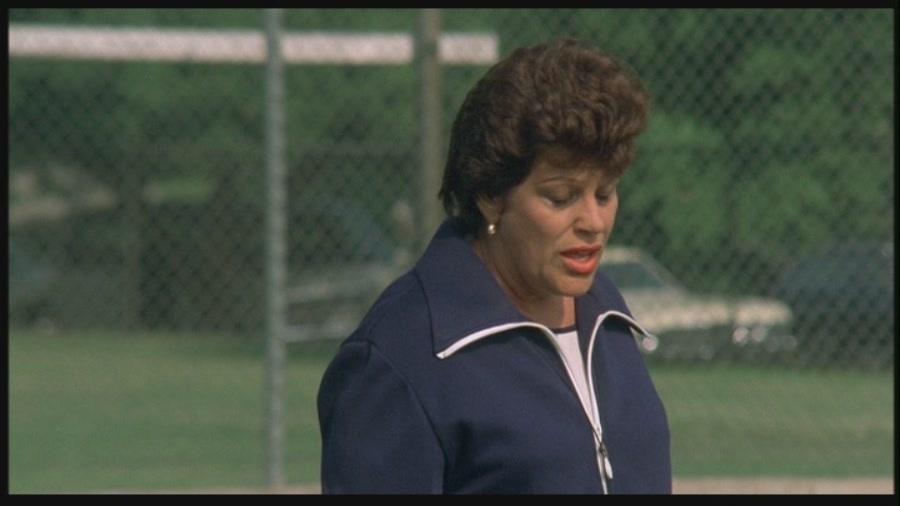
Despite the liberties it takes with the book’s plot, the movie’s script is witty and engaging, even when not laugh-out-loud funny, in the same way. The forceful personalities of Ellen and Annabel, who are equally smart-alecky in their contrasting ways, keep the movie bouncing along from embarrassing mishap to embarrassing mishap without growing tiresome. Well, for most of the runtime anyway. My only major beef with the script is the overelaborate slapstick climax. While it involves an amusing twist on audience expectations, this climax goes on about five minutes too long and kills whatever suspense the movie had generated as it soon becomes clear there will be no physical repercussions to whatever violence befalls the characters. Was this climax Rodgers’ idea or was she forced to include it since 7os Disney comedies always had set pieces like this? As a fan of the book, I find it disappointing that this replaces that version’s climax which managed to be both dramatically tense and hilarious.
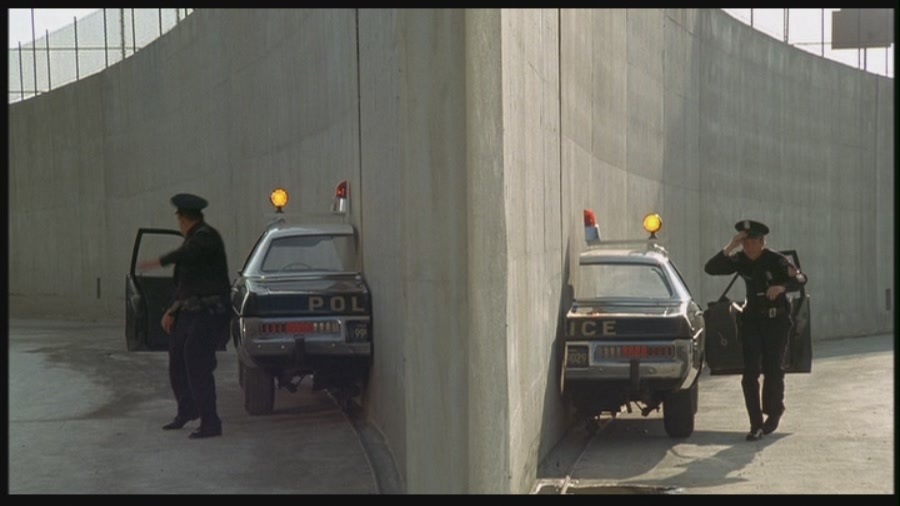
The climax does have value in that the father gets some comeuppance for being such a “male chauvinist pig.” (Annabel’s description.) Throughout the movie, he dismisses his wife’s thoughts and concerns, expects her to prepare a huge meal for his business associates at the last minute and “show up looking beautiful” to said meal in a sexy black dress. We’re clearly not meant to approve of this, but the fact that he never apologizes or tries to change dates poorly. [3]Some also object to the way Annabel’s beloved Boris, in both the book and the movie, only becomes attracted to her after her braces are removed and she receives a girly makeover. I suppose … Continue reading The character in the book also expected his wife to produce a big meal at the last second, but he had more scenes showing him in a more sympathetic or neutral light. What was the point of making him so unlikeable here? The movie’s ending feels like it was setting up a sequel in which the father would undergo his own character development. But, for better or for worse, no such sequel was made. [4]Mary Rodgers would eventually write a literary sequel to Freaky Friday along these lines called Summer Switch. It followed the movie’s lead, rather than the book’s, in having parent and … Continue reading Remakes aplenty, however, were.
Someday You Ought to Try My Life: Freaky Friday (1995)
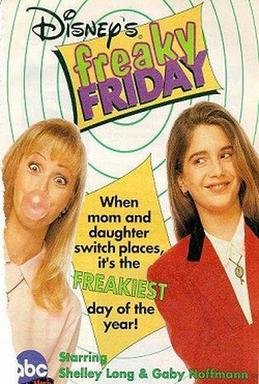
In 1995, Disney collaborated with ABC to do a TV remake of Freaky Friday directed by Melanie Mayron from a script by Stu Krieger. This is easily the Friday that’s most under the radar, not being on DisneyPlus and, I believe, never having been released on home video. (So no screencaps this time, folks.) If it weren’t viewable on YouTube as I type this, I wouldn’t have included it at all. To put it bluntly, the fact that you probably haven’t seen it is no huge loss. But for those interested in tracing the evolution of this story over the years, [5]By which I mean myself it’s valuable as a “missing link” between the 1972 movie and the 2003 one. [6]In particular, the father figure in this one is interesting in that he’s halfway between the negative figure he was in the first movie and the positive figure he would become in all subsequent … Continue reading
Shelley Long’s Ellen Andrews now has a job outside the home [7]Though in Mary Rodgers’ sequels to the literary Freaky Friday, the character already got a job at a museum. and is trying to overcome her cigarette addiction, though she amusingly falls off the wagon due to the stress of unexpectedly swapping bodies with her daughter, Annabel (Gaby Hoffman) (or Annabelle as IMDB would have it.) An update more important to the story is that she’s divorced. Bill is now the name of her boyfriend (Alan Rosenberg) whom her daughter resents. This is a change that both future remakes would borrow though their mothers would be widowed. [8]Probably just as well since the 1995 movie initially makes a big deal about the divorce, but never really explains how it happened. The whole thing comes across as an undercooked attempt at … Continue reading While it’s still on Friday the thirteenth that the switch happens, this movie introduces another explanation for it: A pair of matching Talismans from a Chinese restaurant that do magic when the wearers’ think the same thought at the same time.
The conflict between mother and daughter is the same as in the 1976 movie, but the tone is weirdly more dramatic. In that movie, the big fight between Ellen and Annabel was related rather than seen. In this one, we see several sharp disagreements between the two during the first twenty minutes or so. They sound like a real mother and daughter fighting, which means they come across as really unpleasant and not particularly funny. The 1976 characters managed to come across as both snippy and likable in a way these two don’t. They do gain audience sympathy after the switch-too much sympathy frankly. The book and the original movie had the characters accept the story’s fantastic premise with surreal ease in keeping with the tongue-in-cheek tone of the work. Here Annabelle and Ellen are realistically freaked out and it’s not a lot of fun to watch them desperately pleading in vain for others to believe them. I’d like to stress that I’m not blaming Hoffman or Long for this unpleasantness. They do what I think the script wants them to do and do it with energy. I’m just not convinced the script has the right idea.
Where the first Freaky Friday movie gave Annabel and Ellen each a number of obligations that made them envy the other and which the other was unprepared to handle upon their transformation, this one gives both daughter and mother one big responsibility. Well, two big responsibilities in the mother’s case. She’s stuck with the roles of firing a nice but useless employee and impressing a prickly client. Annabelle, as captain of her swim team, is given the choice of which of the alternates should replace a teammate for the finals, a choice that could spell social disaster for her as the best candidate is also the least popular among her peers. These specific woes of adulthood and adolescence aren’t mined for wry humor nearly as much as the generalized ones of other Freaky Fridays. They play out more like drama, which I suppose isn’t, by definition, bad. But it’s only occasionally interesting drama. The overall effect is again more depressing than anything else.
When the script decides to be a comedy though, it can be very fun, such as in the scene of Annabelle’s floundering attempt to speak Spanish or Ellen’s impassioned speech in biology class about the “antiquated and sadistic, not to mention sickening, ritual” of frog dissection. [9]Though that one does foreshadow one of the dumbest moments in the 2003 Freaky Friday. And I appreciate that this movie’s revised climax is toned down from the 1976 one. I may have made this Freaky Friday sound worse than it really is, but there are reasons you’ve likely never seen or even heard of it. What are my takes on the Fridays with which you are more likely to be familiar? I hope to discuss those very soon.
To Be Continued
References
| ↑1 | The daughter, incidentally of composer Richard Rodgers. |
|---|---|
| ↑2 | The book does have Ellen deal with not being able to purchase cigarettes or use her charge plates without permission. In fact, her experiences lead to her conclude that too many adults treat children as “deaf, dumb, blind and utterly insensitive.” But the book really isn’t about that. |
| ↑3 | Some also object to the way Annabel’s beloved Boris, in both the book and the movie, only becomes attracted to her after her braces are removed and she receives a girly makeover. I suppose that’s a legitimate gripe, but I’d argue that (a) in his defense, Boris has reasons besides her appearance for being repelled by Annabel, (b) he starts to be attracted to her personality before he sees her new look, albeit while that personality is also in a more attractive, though inappropriately old, body, and (c) while it’s presented as a triumph that Annabel is able to charm the boy who once dismissed her, it’s also presented as a triumph that she reaches the point in their relationship where she no longer grovels before him and even upbraids him. |
| ↑4 | Mary Rodgers would eventually write a literary sequel to Freaky Friday along these lines called Summer Switch. It followed the movie’s lead, rather than the book’s, in having parent and child switch places when they express the wish to do so at the exact same time. I doubt Summer Switch was written with the intention of being adapted by Disney though, given its adult content and mature themes. Incidentally, while Summer Switch and Rodgers’ earlier non-body switch themed follow-up, A Billion for Boris, are well worth reading for fans of the characters, neither is as good as Freaky Friday. |
| ↑5 | By which I mean myself |
| ↑6 | In particular, the father figure in this one is interesting in that he’s halfway between the negative figure he was in the first movie and the positive figure he would become in all subsequent ones. |
| ↑7 | Though in Mary Rodgers’ sequels to the literary Freaky Friday, the character already got a job at a museum. |
| ↑8 | Probably just as well since the 1995 movie initially makes a big deal about the divorce, but never really explains how it happened. The whole thing comes across as an undercooked attempt at topicality. |
| ↑9 | Though that one does foreshadow one of the dumbest moments in the 2003 Freaky Friday. |
